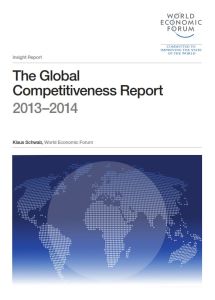Join getAbstract to access the summary!

Join getAbstract to access the summary!
Klaus Schwab, World Economic Forum
The Global Competitiveness Report 2013–2014
World Economic Forum, 2013
What's inside?
How 148 economies around the world stack up on economic, social and environmental competitiveness.
Recommendation
The World Economic Forum presents the 2013 iteration of its annual compendium of statistics and analysis covering the factors that make economies soar or sink. Myriad variables drive competitiveness in any country, region or territory. The report examines more than 100 different elements, but they all link back to one critical factor: productivity. Increasing productivity invariably leads to growing prosperity and opportunity. This year, the World Economic Forum paid particular attention to measures of social and environmental sustainability, issues that are especially relevant in a time of growing political unrest and climate change. Switzerland has something to crow about – it tops the ranking for the fifth year running. getAbstract recommends this exhaustive and enlightening study of 148 economies around the world to global business executives and policy makers.
Summary
About the Author
Klaus Schwab is the founder and executive chairman of the World Economic Forum. Working through leaders in government, business and academia, the WEF is a global, independent and nonprofit entity “committed to improving the state of the world.”
















Comment on this summary